GENERAL DATA
Plant Parts: Bark, Leaf, Flower, Fruit, Manna, Flower oil, and Flower hydrosol
Cultivation mode: Wild collection
In manufacturing: Pharmaceutical
In food: –
🌿 Industries That Use Willow Manna (Bidkhesht) from Salix fragilis L.
Willow Manna, traditionally called Bidkhesht in Persian medicine, is a naturally exuded, sweet, yellowish or whitish secretion from the bark or branches of the Crack Willow tree (Salix fragilis), often as a response to insect activity (especially Coccus salicis). It forms as droplets or crusts and is collected during warm seasons.
It has been used since antiquity in Iranian, Unani, and Islamic Traditional Medicine for its laxative, detoxifying, and mildly sweetening effects.
1. Pharmaceutical & Traditional Medicine Industry
Used in Persian and Islamic medicine systems as a mild laxative, detoxifying tonic, and fever reducer.
Applications:
-
Natural mild laxative for children and elderly patients
-
Liver detox support
-
Treats dry coughs, inflammation, and fever
-
Considered a gentle demulcent and cooling agent
✅ Often found in:
-
Syrups
-
Traditional powder mixtures
-
Herbal decoctions
-
Combined with Purgative Manna, Senna, or Figs
2. Herbal & Nutraceutical Industry
Used in modern herbal blends and natural wellness supplements focusing on digestive health and colon cleansing.
Applications:
-
Laxative and colon support capsules
-
Powdered blends for digestive comfort
-
Prebiotic formulations (due to its mild sugars and fibers)
✅ Typically combined with:
-
Senna leaves
-
Tamarind
-
Psyllium
3. Food & Sweetener Industry (Traditional)
Though not used commercially as a sweetener today, it was historically consumed as a natural, plant-derived sugary exudate, especially in rural Iranian regions.
Applications:
-
Dissolved in water or herbal teas
-
Occasionally blended with dried fruits
-
Cultural or regional remedies for seasonal fatigue
✅ Considered safe in small quantities
✅ Used more in traditional households than commercial markets
4. Ethnic, Organic & Export Markets
This rare type of natural manna is still traded in small batches in:
-
Persian herbal markets
-
Unani medicine shops
-
Ethnic apothecaries and online stores
Exported as:
-
Dried chunks or resin
-
Powdered or granulated manna
-
Included in traditional detox kits
5. Academic & Ethnobotanical Research
Still studied for its chemical composition and role in ancient medicine:
-
Contains mannitol, glucose, resins, and plant waxes
-
Investigated as a source of natural laxatives and mucosal protectants
-
Rare ethnobotanical references add cultural significance
✅ Summary of Key Applications
| Industry | Common Uses |
|---|---|
| Pharmaceutical & Traditional | Mild laxative, anti-fever tonic, liver cleanser |
| Herbal & Nutraceutical | Digestive wellness, colon cleansers, prebiotic blends |
| Food (Traditional Use) | Natural sweetener, detoxifying syrup, fatigue support |
| Ethnic & Export Markets | Dried resin, powdered manna, traditional Persian kits |
| Research & Ethnobotany | Natural sugar studies, cultural medicine, pharmacognosy |
🌟 Key Features of Willow Manna (Bidkhesht)
-
🍬 Naturally exuded from Salix fragilis bark
-
🌿 Used as a laxative and detoxifier in Persian traditional medicine
-
💧 Contains mannitol, resin, glucose, and trace polysaccharides
-
🧪 Still used in ethnobotanical formulations and research-based remedies
-
🌍 Rare product with limited but high-value market potential
🧾 Comparison Table: Traditional Iranian Manna Types
| Feature | Willow Manna (Bidkhesht) | Purgative Manna (Shir Khesht) | Trehala Manna (Echinops spp.) | Taranjabin (Manna of Hedysarum) |
|---|---|---|---|---|
| Botanical Source | Salix fragilis (Crack Willow) | Fraxinus ornus or Alhagi maurorum | Echinops species (Globe Thistle) | Hedysarum alhagi / Alhagi maurorum |
| Common Name | Bidkhesht | Shir Khesht | Trehala | Taranjabin |
| Appearance | Sticky, sweet exudate, yellowish-white | White to yellowish, granular or soft chunks | Hard, irregular spherical granules (“dry berries”) | Crystalline or flaky sweet exudate |
| Primary Use | Mild laxative, cooling, detox | Stronger laxative and liver detox | Mild laxative, demulcent, energizer | Gentle laxative, pediatric use, mild sweetener |
| Flavor Profile | Mildly sweet, earthy | Sweet with slight bitterness | Slightly sweet, bland to earthy | Sweet, cooling |
| Traditional Medicine Role | Liver cleanser, fever reducer | Powerful laxative, bile regulator | Anti-fatigue, gut soother | Mild detox, pediatric-friendly formula |
| Active Compounds | Mannitol, glucose, resinous waxes | Mannitol, resin, sugar alcohols | Inulin-type polysaccharides, fiber | Mannitol, glucose, mucilage |
| Strength of Laxative Action | Gentle | Medium to strong | Mild | Very mild |
| Preferred In | Elderly, feverish, or detox treatments | Liver/gall bladder treatments | General wellness, travel fatigue | Children’s remedies, light detox |
| Form Available | Dried sap, resin, powder | Powder, crystals, syrup | Whole granules, crushed powder | Crystals, syrup, powder |
| Harvest Method | Naturally exuded from bark via insects | Exuded by plant, sometimes insect-aided | Formed by insects feeding on thistle stems | Insect exudate collected from stems |
| Regions in Iran | Caspian & northern riverbanks | Kerman, Lorestan, western Iran | Yazd, Isfahan highlands | Fars, Lorestan, Isfahan, Khorasan |
✅ Summary Highlights
-
Gentlest & Pediatric: 🍬 Taranjabin
-
Strongest Detox Effect: 💪 Purgative Manna (Shir Khesht)
-
Most Unique Structure: 🌾 Trehala Manna (like dried balls)
-
Cooling & Fever Relief: 🌿 Willow Manna (Bidkhesht)
PRODUCT NAME IN DIFFERENT LANGUAGES
Persian Name: بیدخشت/ Bid-Khesht
German Name (Deutschland, Austria, Switzerland): –
French Name (France, Belgium, Switzerland, Quebec): –
HARVEST CALENDAR
Feb
Mar
Apr
May
Jun
Jul
Aug
Sep
Oct
Nov
Dec
To order Bidkhesht, please contact us.
About Willow Manna
The height of the Brittle willow tree (the tree Willow Manna is produced from) reaches twenty meters. The branches of this tree are slightly brittle and slightly hanging. The leaves of this tree are elongated and pointed, and their sides are saw-shaped. The back of its leaves is much paler and whiter than the top. The petioles are short. Brittle Willow flowers are a set of yellow-green and fluffy filaments that grow in a cylindrical shape.
There is a dark yellow seed on each of these threads. Its flowers are fragrant. The fruit of this tree is small, elongated, relatively narrow, and green, which grow in tall and straight clusters.
Willow Manna is a type of manna that is produced by the activity of an insect called Tuberolachnus salignus on the leaves and branches of the Brittle Willow tree. These aphids suck this plant’s sap with their proboscis and after a series of reactions occur on it in their digestive system, produced manna expels from the cornicles of the sixth abdominal segment. Willow Manna droplets, which have a diameter of 1 to 2 mm, turn into crystals after leaving the insect’s body in the vicinity of the air, and can be collected. This manna is similar to cane sugar and its color is milky white and it has a pleasant smell. Willow Manna is sweet and easily dissolves in water.
Willow Manna Temperament
Cold and moderate.
Bidkhesht Chemical Constituent
Sucrose, fructose, glucose, water, amino acids, and salicin.
Bid-Khesht Health Benefits
Willow Manna is laxative. It is tonic for the liver, intestines and viscera, respiratory system, and eyes. It is diuretic and reduces heart, liver, and stomach heat.
It purges the brain and is useful for fever, cold, throat and chest pain relief, shortness of breath, hot cough, oral thrush, and dysentery.
In traditional medicine, Willow Manna is considered the coolest type of manna and it is used to treat fever, chicken pox, different types of typhoid, and herpes.
Bidkhesht Dose
Between 1.3 to 2.3 grams.

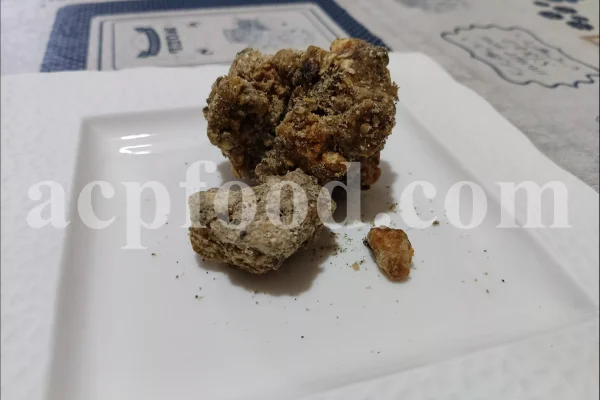
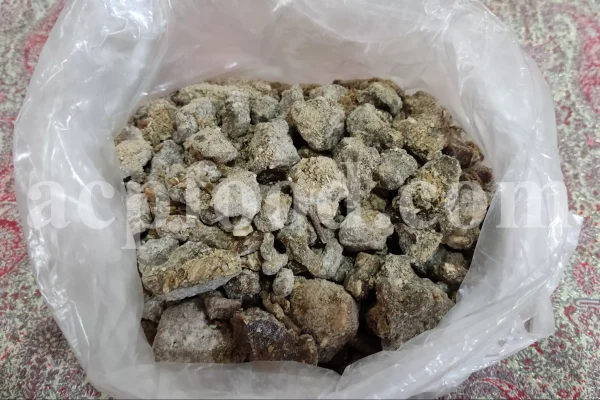

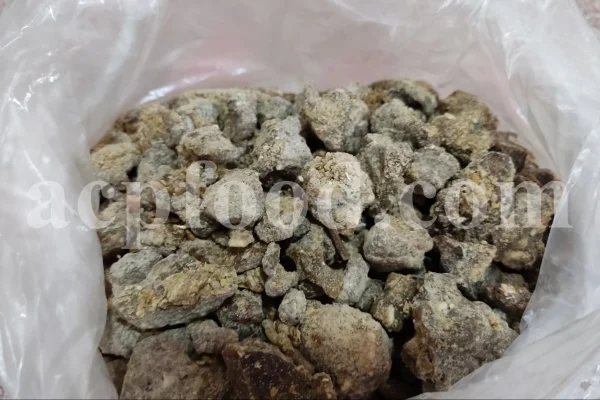


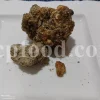

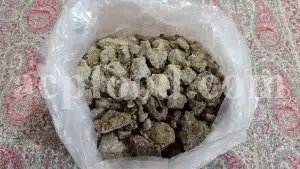
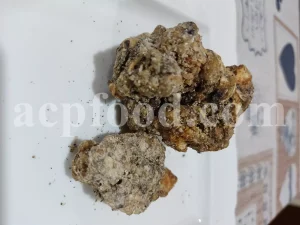
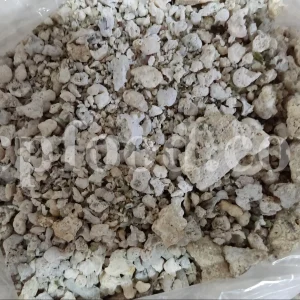
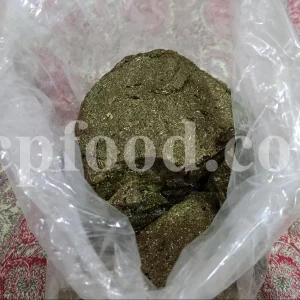
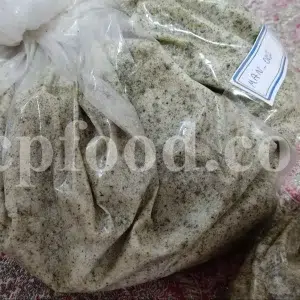
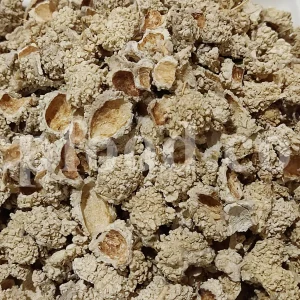
Reviews
There are no reviews yet.